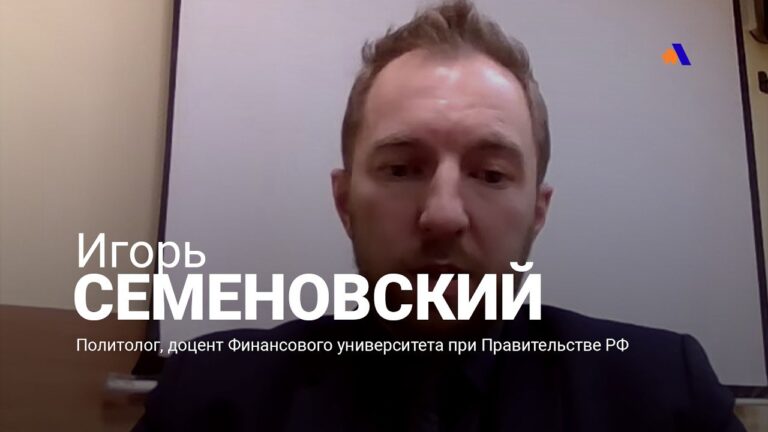Independence of Armenia’s judicial system is in question, says GRECO expert
December 18 2024, 17:42

Stephane Leyenberger, an expert of the Group of States against Corruption at the Council of Europe (GRECO), in an interview with Alpha News commented on GRECO’s report on the prevention of corruption in respect of members of Armenian MPs, judges and prosecutors.
Could you summarize the key findings of the GRECO report and how effective do you think the reforms in Armenian judiciary? What are the most critical gaps in Armenian anti-corruption framework based on GRECO’s assessment?
Actually, I have to mention that this report and this assessment concerns two fields. First of all, it concerns the members of parliament and second, judges and prosecutors. So what we have assessed in these reports really refer to these two kind of officials, if I may say so. And this process is quite a long process because it’s a nine-year process now, which has just been terminated by GRECO after nine years, with some progress and with some positive assessment, but having in mind that it has taken quite a long time to reach these results.
So if I take the MPs, the members of parliaments, according to GRECO’s expectations in its evaluation report, which was issued, I think, in October 2015, so nine years ago, we can say that first Armenia has improved its legislative process so as to make it more transparent and more open to discussion also with the interested public. That was one of the requests of GRECO and which seems to have evolved in the right direction.
Measures have been taken to prevent conflicts of interest as regard to parliamentarians, mainly as regards the rules on the transfer of shares which are held by parliamentarians. It was one of the strong requests by GRECO that when parliamentarians have shares, own shares, they would have to transfer them to a trust management or to a specific system which make them independent from the company they have shares on. And there has been some progress also as regards the rules on gifts, what are the rules for accepting or refusing gifts and for registering the gifts which have been received when you cannot avoid taking a gift that is given to you.
Some lacuna remain, in particular that we are still or GRECO is still requesting a code of conduct to be adopted for parliamentarians and also coupled with an effective supervision system on this code. So this is still lacking. It’s not because GRECO terminates the procedure, which was a long one, once again, that everything is perfect.
And as regards parliamentarians, the main issue, the main lacuna remains in the code of conduct and the ethics committee to be really set up within parliament.
As regards the judiciary, there are also some positive steps which are underlined by GRECO. In particular, the effective will to rebalance the composition of the ethics and disciplinary commission to introduce more non-judges members in this commission. But GRECO still regrets that the Minister of Justice continues playing a role in the disciplinary system for judges. GRECO would have preferred that the minister is totally out of the system.
Can you bring any example?
When there is a panel to decide on a possibility, on possible sanctions against judges, GRECO would prefer that the Minister of Justice does not have a word to say in this and do not sit in such a disciplinary panel as such. Maybe he can be a member of the High Council of Justice, if you want, but not being involved in the disciplinary issues for judges. And that’s something which has not been totally achieved.
Is it possible to achieve any reforms while the Minister of Justice actually interferes in the process?
The easiest way is that the Minister of Justice does not sit in the committee or commission which decides on disciplinary issues. It’s a pressure from the executive power on the judicial power, because if the minister can have a word to say about a disciplinary situation of a judge, it’s a way of putting pressure on the judge. So, this is not recommended, obviously.
But did you receive any message?
But this goes even beyond GRECO’s own concern. That’s also a general principle for the Council of Europe. You can find it also in the Venice Commission reports or in the opinions of the Consultative Council of Judges and other issues. I think the Council of Europe, in its various bodies, speech has the same language, saying that, obviously, when dealing with the management of judges’ careers, we must prevent interference from the executive. The best way of doing it is that the minister is not a member of the judicial council or the council which takes decisions about the management of judges. That’s the easiest way. It has been considered that, according to certain country traditions, the minister can remain a member of a judicial council as such, but at least that he or she couldn’t take part in decisions regarding discipline.
So, is this the bridge of the principle norm of the Council of Europe that jeopardizes the whole democratic development?
If the Minister of Justice has an active role in a decision regarding the discipline of judges or of prosecutors, this can be assessed as a breach in fundamental principles, because this jeopardizes the true independence of judges.
And the whole system?
Yes, one of the key elements of the independence is not guaranteed.
Did you receive any response of the government on your criticisms?
For the time being, we noticed that this has not been the case. GRECO notes that the role of the Minister of Justice in disciplinary proceedings against judges has not been reviewed. So, no changes. This is the answer. But there is a willingness, which has been said. “We, Armenian authorities, are envisaging the possibility to reconsider these positions once the efficiency and fairness of the Ethics and Discipline Commission of the General Assembly of Judges, which have been strengthened.” So, there is a willingness, at least said, that we will go on. So, we take note of this willingness. But as long as this has not been done in the law, obviously, we say, okay, we encourage you to go until the end of your thinking. They are maybe in the right direction, but they haven’t achieved the objective so far. So, the system exists now. It has been decided that the appeal system would be made available for judges if they are sanctioned. But the system is still not operational, so that’s also an issue.
How does GRECO evaluate the role of civil society in monitoring corruption prevention efforts in Armenia? In your opinion, can Armenia improve public trust in its legal and political institutions in the context of anti-corruption efforts?
That’s the main issue of GRECO. Obviously, when talking about transparency in the legislative process, consultation with the public, etc., you can have many different goals in this and it is better to take into consideration the concern of the society, etc.
What GRECO is concerned of is really the purely transparency of the process to avoid that the parliamentarians are in the hands or too much in the hands of lobbies, and to make sure that what they are doing is not done under pressure from third parties or outsiders. It increases the role for the public discussion, but the law on public discussion can have several objectives. And the objective which really concerns GRECO is really this objective of giving the possibility of public opinion, of media, of NGOs, to check whether or not parliamentarians are subject to undue lobbying, which can also be the result of corruption then. That’s the idea. And we have requested Armenia to see how this evolves.
GRECO has noticed that more and more now draft laws are open to consultation, discussion, or at least, first of all, to publicity, which is given to what is in the pipeline in parliament. That’s the first thing. And that can be done through websites, but not only.
Then you can open the discussion also to civil society or to non-parliamentarian people in commission work or ad hoc commission work, etc. GRECO notices that this trend is positive, that more and more draft laws have been done in this period.
So in recent years, Armenian judiciary has faced significant pressure, raising concerns about judicial independence and the rule of law. For example, the prime minister has been criticized for using his influence to push for the resignation of key judicial figures. What do you think about it?
GRECO has not received enough evidence that pressure coming from upper judges to lower judges can be strictly avoided. And that was one of the big issues of concern for GRECO, is that the pressure coming from upper judges to lower judges was too strong, and that even some lower judges consulted informally upper judges to be sure that they would not be challenged in appeal, and then sanctioned because of this challenge. That’s a concept which was or an issue which was really an issue of concern for GRECO.
We have taken note that the legislation has evolved, that some mechanisms have been put on the paper to avoid this, but GRECO still doubts about the effective function of this system because we still think that there are too many pressures exercised on judges, even by judges themselves, and that remains an issue. Once again, I think the system on the paper is going in the right direction, so that’s a positive point and we must tell it. But we would like to be sure that this system is effective, and for the time being, we haven’t got enough evidences that this is effective.







